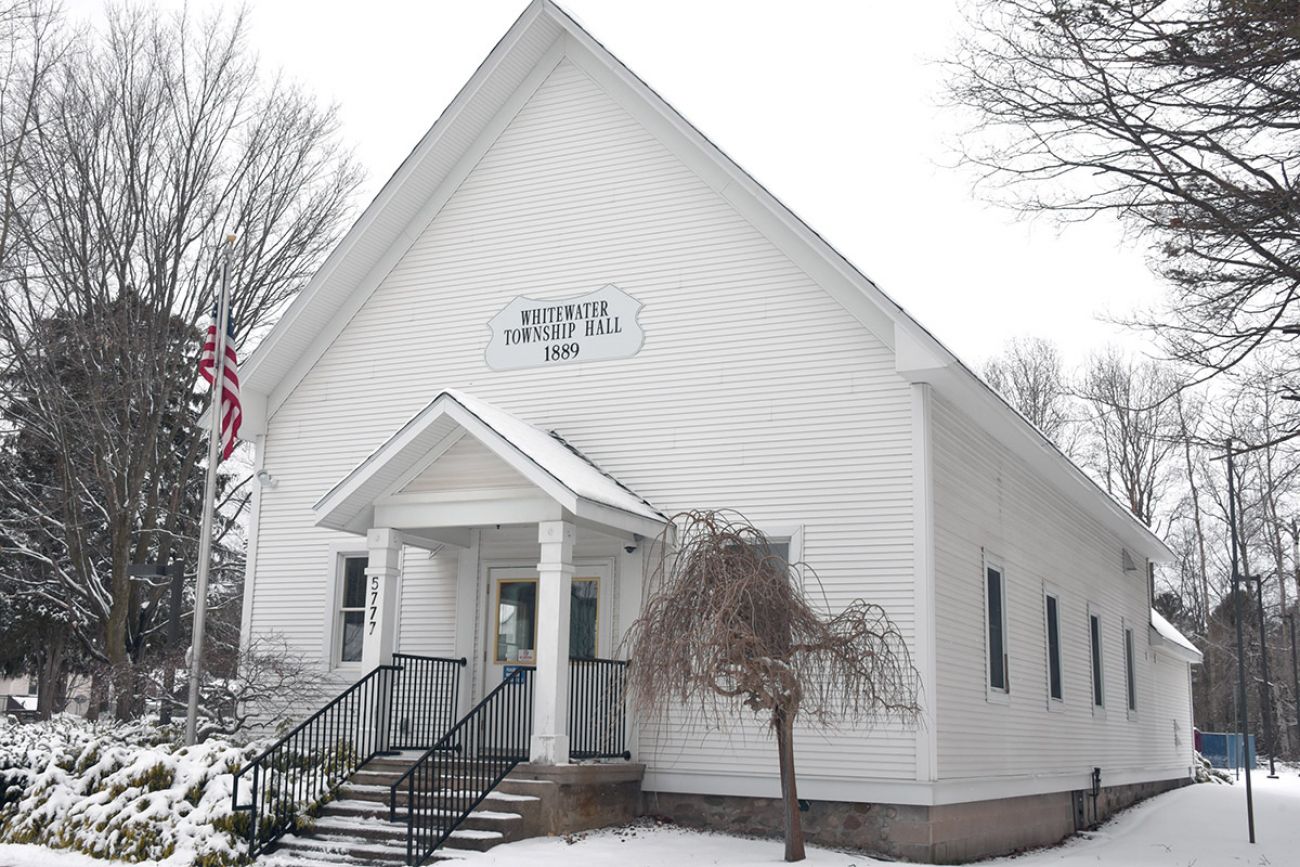Northern Michigan township official apologizes for ‘colored people’ remark

The northern Michigan planning commissioner who referred to “colored people” in a public meeting says he didn’t mean to offend anyone.
Whitewater Township Planning Commission member Mike Jacobson told Bridge Michigan that he didn’t realize people were upset about his comments until he read news coverage of the incident.
“It’s my opinion…this doesn’t need to be drug out,” Jacobson said. “If I was misunderstood...I’m sorry for that. That was not the intention.”
Related: Michigan wine country again confronts race, and its own isolation
At a March 11 meeting to discuss a draft of a township master plan for development, Jacobson questioned the need to include a chart showing census data of the racial makeup of the township, which is 94.7 percent white.
“It’s not like we’re an exclusively white community,” Jacobson said of the township, which has five black residents. “It’s not like we don’t let colored people in.”
The comment, and the controversy it set off, were earlier reported by the Traverse City Record-Eagle and independent news site The Ticker. It marked the latest in a series of racially-divisive incidents in northwest Michigan. In August 2020, a road commissioner in neighboring Leelanau County repeatedly and unapologetically used the N-word at a public meeting. In April 2021, high school students in Traverse City held a mock slave auction of their Black classmates on Snapchat.
Jacobson did not return a phone message for comment before Bridge published its story on the incident late Wednesday. Jacobson called and left a message for a Bridge reporter Thursday morning, and called to speak to the reporter Thursday evening.
Jacobson, 59, said he was “raised right here where we live,” in a rural area of Whitewater Township, a few miles east of Traverse City.
“As a child growing up here in the ‘60s, when the rest of the country was using the n-word regularly, my parents, grandparents and adults in my life used the term ‘colored people,’” Jacobson said. “Throughout my lifetime, I’ve always looked at that as their attempt to take the racism out of the equation.
“It was not my intent to offend anyone,” Jacobson continued. “If I had used the term ‘people of color,’ maybe I would have avoided that, even if they are the same words but in a different order, so that’s my bad.
“In my country bumpkin mind, I don’t see any difference,” Jacobson said. “Evidently, I’m not politically correct.”
In interviews with Bridge, Township Supervisor Ron Popp said he didn’t think Jacobson or other planning commissioners in the township of about 2,800 people were racist.
“In my country bumpkin mind, I don’t see any difference,” Jacobson said. “Evidently, I’m not politically correct.” — Mike Jacobson
“I think I have people that have made statements that definitely were wrong, but that does not mean that it's an inherent belief in their heart,” Popp said. “It may have been something that was heard years ago and this is just restated improperly with today's view.”
Others, including some in attendance at the meeting, were taken aback by Jacobson’s language and the lack of response to it by other commissioners.
“It was absolutely unacceptable,” Eileen Cianciolo, who owns property in the township, told Bridge afterward. “That meeting … was eye-opening. Is that where we really want to have our dream farm, and deal with that kind of narrow-mindedness and racism?”
The language around race has changed over the decades. For example, the U.S. Census used the term “Negro” from 1930 to 1960, “Negro or Black” in 1970, “Black or Negro” in 1980 and 1990, and “Black, African-American or Negro” beginning in 2000.
Columbia University Associate Professor John McWhorter wrote in Slate that language around race changes when negative connotations grow around existing terms. For example, colored is a term that became associated with “white” and “colored” drinking fountains in the segregated South.
“When there are negative associations with something or someone, periodic renewal of terminology is … something to be expected,” McWhorter wrote.
See what new members are saying about why they donated to Bridge Michigan:
- “In order for this information to be accurate and unbiased it must be underwritten by its readers, not by special interests.” - Larry S.
- “Not many other media sources report on the topics Bridge does.” - Susan B.
- “Your journalism is outstanding and rare these days.” - Mark S.
If you want to ensure the future of nonpartisan, nonprofit Michigan journalism, please become a member today. You, too, will be asked why you donated and maybe we'll feature your quote next time!




